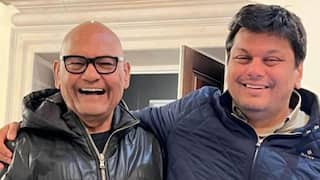Dr APJ Abdul Kalam Death Anniversary: When 'People's President' Faced People's Ire
Due to his humility and down-to-earth nature, Dr kalam came to be known as the 'People's President'. However, there were some instances during his presidency that ignited controversy.

Today is the seventh death anniversary of India's former President Avul Pakir Jainulabdeen Abdul Kalam or Dr APJ Abdul Kalam. Known as the "Missile Man of India", Dr Kalam had long stints in the Defence Research and Development Organisation (DRDO) and the Indian Space Research Organisation (ISRO) and played a significant role in conducting the 1998 nuclear weapon test in Pokhran.
Dr Kalam was the first principal scientific adviser to the Union government from 1999 to 2001 before serving as the 11th President of India. Due to his humility and down-to-earth nature, he came to be known as the "People's President". Dr Kalam received the Padma Bhushan in 1990 and the Bharat Ratna, India's highest civilian honour, in 1997.
However, there were some instances during his presidency from 2002 to 2007, and afterwards, that ignited controversy.Below are a few such incidents:
An advocate of uniform civil code: While many consider the uniform civil code a tactic to target the Muslim population, Kalam -- a practicing Muslim himself -- was a supporter of the code. In an interactive session with school students in PGI, Chandigarh, in September 2003, he had advocated for the uniform civil code keeping in view the huge population of the country. "We are a billion-strong population," he had said, adding, "and any law has to be uniformly applicable".
Indecision on mercy pleas: During his five-year tenure as president, Kalam decided only two mercy petitions (rejecting one while accepting the other) filed by convicts on death row out of the 28 petitions that were pending before him. Out of the undecided mercy pleas, one was of the 2001 Parliament attack convict Afzal Guru.
Kalam even had a meeting with the family of Guru in 2006, probably the first time that a President gave time to the kin of a terror convict on death row before deciding on the mercy plea. However, he had later clarified in an interview with India Today that he did not even came across Guru’s plea.
Moreover, he was opposed to the very idea of death sentence and observed that most of the convicts on death row were from the lower and marginalised strata of the society. He had expressed the same in his book "Turning Points: A Journey Through Challenges".
Imposition of President’s rule in Bihar: Kalam had drawn criticism for imposing President’s rule in Bihar in 2005.
After no political party in the state failed to get a clear majority in the Assembly election, the then governor of the state, Buta Singh, recommended imposition of President's rule apprehending "large scale horse-trading". On the advice of the UPA-led Central government, Kalam – who was on a tour to Moscow – approved the recommendation in just two hours.
As the matter went to the Supreme Court, the then Chief Justice criticised the move, calling it a decision taken with "malafide intent".
Supporting the Kudankulam nuclear power plant: In 2011, people living in the vicinity of the under-construction Kudankulam nuclear power plant in Tiruneveli district of Tamil Nadu staged a protest, fearing a Fukushima Daichii-like nuclear disaster that had just taken place in Japan.
Dr Kalam -- hailing from the same state -- visited the site to inspect the safety precautions taken at the plant. After the inspection, he made statements in support of the nuclear project that led to fierce criticism not only from the local population but also social activists and former scientists.





































